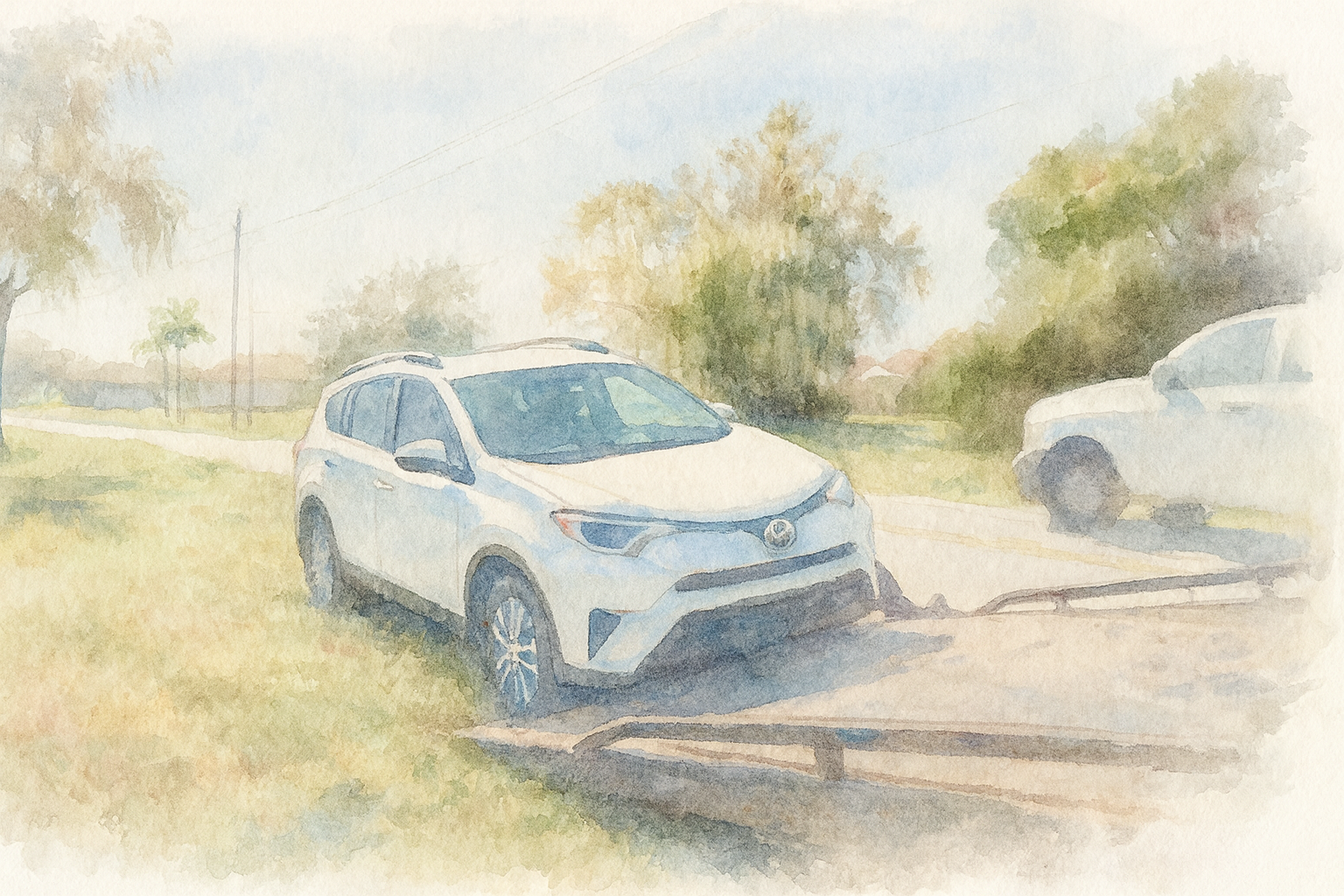Volunteer Drivers & Personal Vehicles: The Hidden Risk Churches Forget to Check

Hey, Lara here.
I've spent years walking through churches, theme parks, warehouses, and ministries, and I can tell you this with absolute confidence:
Some of the highest-risk moments in church life happen off campus, right when someone hops into their car to "run a quick errand for the church."
And here's the kicker:
Most churches spend more time vetting someone to run the soundboard than they do vetting someone who is about to put kids, volunteers, or ministry passengers in their personal vehicle.
So let's talk about what really matters when volunteers drive their own cars for ministry and how to keep people safe without making it complicated.
1. "Who's Driving?" Shouldn't Be a Guessing Game
I've lost count of how many times I've heard, "Oh, we just had whoever was available drive."
I love spontaneity, but not when it comes to transporting people.
Tip: Create a small, simple list of approved volunteer drivers.
Include name, phone number, what ministry they drive for, and (if possible) when you last checked their license.
Why it matters:
If there's an accident and your church gets pulled into the claim, which happens more often than leaders realize, that list becomes your first line of defense.
2. Check the Driver's License (Yes, You Really Need To)
I once reviewed volunteer drivers for a church and found out a long-time volunteer had been driving students around with a suspended license for months. They had no idea, and neither did anyone else.
Tip: Verify driver's licenses annually.
A quick visual check is fine, and if you want to be more thorough, request a Motor Vehicle Report (MVR).
Why it matters:
Driving with a suspended license can void insurance coverage and put the church at serious risk. A five-second check can save you a five-figure headache.
3. Personal Auto Insurance: Don't Assume Anything
This one surprises most pastors:
Even if a volunteer is using their own vehicle, the church can still be named in a lawsuit if there's a crash while they were "on church business."
Tip: Ask volunteer drivers to provide proof of insurance, ideally with minimum liability limits of $100k/$300k and preferred $250k/$500k.
Why it matters:
If their personal policy is too low, the injured party may come after the church next. Verifying coverage upfront protects everyone involved.
4. The Car Itself Matters — Even If It's Not Yours
One time I watched a volunteer pull up to transport kids with bald tires, a cracked windshield, and a passenger door that stuck every time you tried to open it.
They meant well, but the vehicle wasn't safe.
Tip: Use a short vehicle checklist:
- Working headlights, taillights and indicators
- Functioning horn
- Safe tires
- Functioning brakes
- Functioning seatbelts
- No major body damage
- No mechanical "mysteries"
Why it matters:
A quick inspection prevents situations where faulty equipment contributes to an accident.
5. Set Clear Driving Guidelines Before People Hit the Road
Most volunteer drivers don't break rules on purpose, they just haven't been told what the rules are.
I've seen volunteers unknowingly:
- overload vehicles
- double-buckle seatbelts
- make unscheduled stops
- let students ride up front too young
- drive too fast to keep up with a "caravan"
Tip: Provide a short "Volunteer Driver Guidelines" sheet covering:
- seatbelts for every passenger
- no texting or GPS typing while moving
- approved routes and stops
- what to do in an accident or breakdown
Why it matters:
Clear expectations lead to consistent, safe behavior, especially when transporting kids or vulnerable individuals.
6. Brief Word on Church Vehicles (Still Important!)
Even though this article focuses on personal vehicles, don't ignore the basics for church vans or buses.
Tip:
- Check MVRs for anyone driving church vehicles
- Keep maintenance logs
- Require a brief familiarization drive
- Document who is approved
Why it matters:
Church vehicles are used less frequently, which means issues can hide until the moment they're needed most.
Bottom Line from Lara
Volunteers driving their own cars for ministry is normal, helpful, and often necessary. But it's also one of the most overlooked risks churches face.
The good news?
You don't need a complicated process. You need a consistent one.
If you take one step this week, start a simple list of approved volunteer drivers. It's the foundation of a safer, more responsible transportation practice.
And if you want a system that keeps track of driver approvals, insurance expirations, MVR dates, and all your safety records in one place… join the Wooli waitlist. We built it to make transportation safety simple, clear, and stress-free.
Safety always,
Lara

About the author
Lara
Safety Professional
Lara is a Certified Safety Professional (CSP) with expertise in risk management and organizational safety. She contributes practical guidance and clear frameworks to help teams operate with confidence.
Want to learn more about Wooli and join our Early access waitlist?
Learn About Wooli